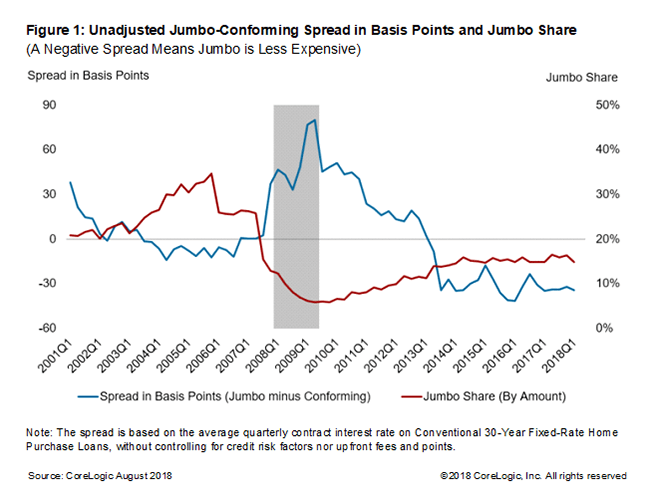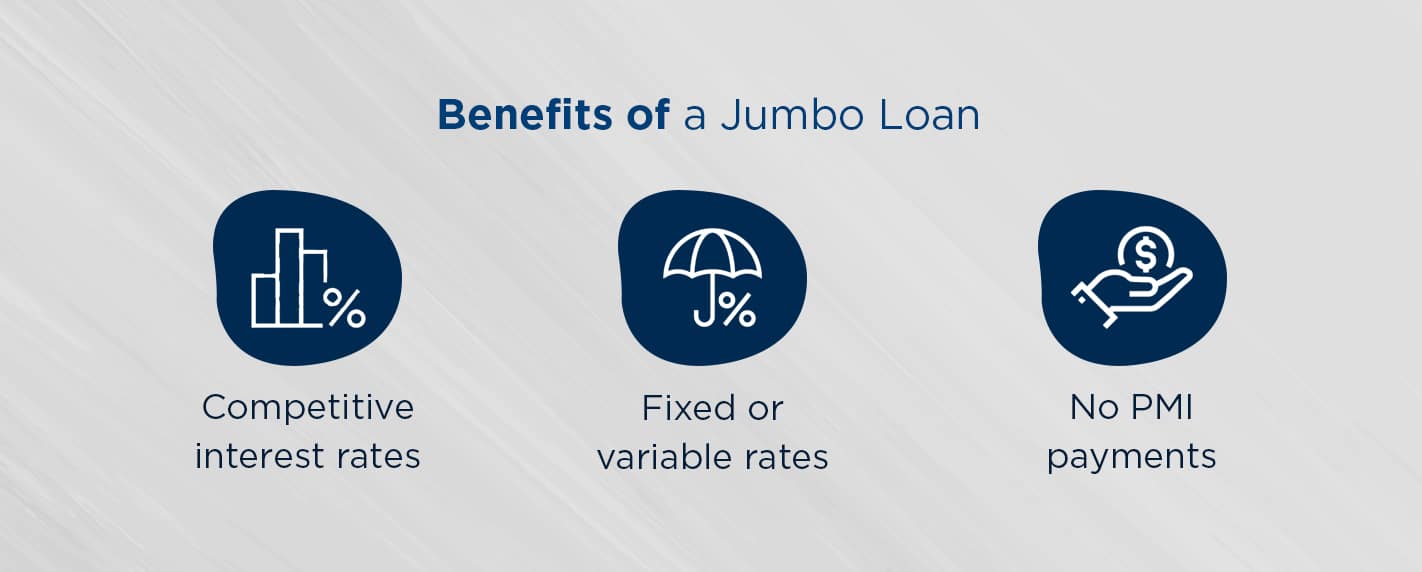Jumbo Loan: Open the Door to High-end Dealing With Specialized Home Loan Options
Jumbo Loan: Open the Door to High-end Dealing With Specialized Home Loan Options
Blog Article
The Influence of Jumbo Lendings on Your Financing Choices: What You Required to Know Prior To Using
Jumbo financings can play a crucial function in shaping your financing alternatives, specifically when it comes to obtaining high-value residential properties. Recognizing the balance between the benefits and difficulties positioned by these lendings is essential for possible customers.
Understanding Jumbo Loans
Recognizing Jumbo Loans requires a clear understanding of their distinct characteristics and demands. Jumbo finances are a sort of home mortgage that exceeds the adjusting finance limits developed by the Federal Housing Financing Agency (FHFA) These limitations vary by place but normally cap at $647,200 in many locations, making big fundings important for funding higher-priced residential properties.
One of the defining functions of big car loans is that they are not qualified for purchase by Fannie Mae or Freddie Mac, which causes stricter underwriting guidelines. Customers have to typically show a greater credit rating, usually over 700, and offer considerable documents of income and possessions. In addition, lenders may need a bigger deposit-- typically 20% or even more-- to minimize risk.
Rate of interest on jumbo fundings can be a little greater than those for adapting car loans as a result of the increased risk presumed by the lending institution. The absence of personal home loan insurance coverage (PMI) can balance out some of these prices. Recognizing these factors is essential for prospective consumers, as they significantly influence the terms and feasibility of protecting a big finance in today's affordable realty market.
Benefits of Jumbo Car Loans
Jumbo fundings supply distinctive benefits for property buyers looking for to buy high-value residential or commercial properties that exceed traditional lending limits. Among the main benefits of big finances is their capability to fund bigger amounts, allowing customers to obtain homes in premium markets without the restrictions imposed by conforming loan limitations - jumbo loan. This versatility allows buyers to check out a broader series of properties that might better fit their needs and choices
Additionally, jumbo lendings usually include affordable rate of interest, particularly for consumers with strong credit scores accounts. This can result in significant savings over the life of the funding, making homeownership more budget friendly in the future. Jumbo finances can be customized to suit private monetary scenarios, offering various terms and amortization choices that straighten with the borrower's objectives.

Obstacles of Jumbo Fundings
Navigating the intricacies of jumbo car loans offers a number of challenges that prospective consumers need to know before continuing. One substantial obstacle is the rigid lending standards enforced by financial establishments. Unlike adhering lendings, big car loans are not backed by government-sponsored ventures, leading loan providers to take on more strenuous standards. This usually includes greater credit report requirements and significant documentation to confirm revenue and assets (jumbo loan).
In addition, jumbo car loans normally come with higher rate of interest rates contrasted to standard lendings. This elevated expense can substantially influence month-to-month payments and overall cost, making it necessary for consumers to thoroughly evaluate their monetary scenario. Moreover, the down payment requirements for big financings can be significant, frequently Look At This varying from 10% to 20% or more, which can be a barrier for numerous possible homeowners.
Another challenge depends on the minimal availability of jumbo finance items, as not all lenders use them. This can bring about a reduced pool of choices, making it vital for consumers to conduct extensive research study and possibly look for specialized lending institutions. Overall, understanding these difficulties is crucial for any person taking into consideration a big lending, as it makes sure enlightened decision-making and far better economic preparation.
Credentials Standards
For those thinking about a big loan, meeting the qualification standards is a crucial step in the application process. Unlike conventional loans, big loans are not backed by government firms, causing more stringent demands.
Firstly, a solid credit history is vital; most lenders require a minimal score of 700. A higher rating not just enhances your chances of authorization however may also safeguard much better rates of interest. In addition, debtors are usually expected to demonstrate a considerable income to ensure they can pleasantly handle higher month-to-month settlements. A debt-to-income (DTI) ratio listed below 43% is normally preferred, with reduced ratios being extra positive.
Deposit needs for jumbo lendings are likewise significant. Debtors need to expect taking down a minimum of 20% of the property's purchase rate, although some lenders may supply options as low as 10%. Showing cash reserves is important; loan providers usually require proof of sufficient liquid possessions to cover a number of months' well worth of mortgage payments.
Comparing Financing Choices
When examining funding alternatives for high-value homes, comprehending the distinctions in between different lending types is important. Jumbo finances, which go beyond adapting lending limits, generally come with stricter credentials and higher rates of interest than standard financings. These car loans are not backed by government-sponsored ventures, which increases the lending institution's threat and can result in a lot more rigid underwriting requirements.
On the other hand, conventional loans offer even more versatility and are typically simpler to obtain for consumers with strong page credit history accounts. They might come with reduced rate of interest and a wider variety of choices, such as fixed or adjustable-rate home mortgages. Furthermore, government-backed car loans, like FHA or VA lendings, give chances for lower deposits and more forgiving credit score demands, though they additionally impose restrictions on the funding amounts.
:max_bytes(150000):strip_icc()/dotdash-jumbo-vs-conventional-mortgages-how-they-differ-v2-75c8bd243a054517aa21385ef266c11d.jpg)
Verdict
In verdict, big lendings present both opportunities and difficulties for potential property buyers looking for funding for high-value buildings. While these loans permit larger amounts without the burden of exclusive home mortgage insurance, they come with stringent qualification requirements and potential drawbacks such as greater rate of interest. An extensive understanding of the benefits and difficulties related to big financings is essential for making informed decisions that line up with long-lasting financial goals and objectives in the realty market.

Report this page